-
Risk-based passenger screening may well make air travel safer
In a new study, researchers demonstrate that intensive screening of all passengers actually makes the system less secure by overtaxing security resources; the reason: when overestimating the population risk, a larger proportion of high-risk passengers are designated for too little screening while a larger proportion of low-risk passengers are subjected to too much screening
-
-
Two U.K. citizens detained by DHS over Twitter jokes
In an egregious error, Homeland Security agents apprehended two young British travelers bound for Los Angeles over misunderstood tweets
-
-
New scanner allows passengers to take liquids on board
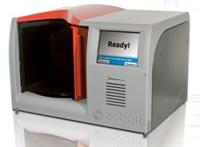
A new bottle scanner enables aircraft passengers to carry liquid items larger than 100 ml once more; airports could now allow passengers to take items such as water, cosmetics, perfumes, and duty free through airport security channels from as early as 2013
-
-
Buffalo airport perimeter security found 100 percent accurate
A recent Transportation Security Administration (TSA) report found that the new perimeter security system at Buffalo Niagara International Airport in New York was 100 percent accurate in tracking and detecting intrusions
-
-
TSA screens employees for radiation from body scanners
In response to fierce criticism that the Transportation Security Administration (TSA) was needlessly exposing millions of airport passengers to potentially harmful amounts of radiation, the agency has agreed to measure radiation exposure levels from full-body scanners at 100 airports across the country
-
-
Accenture to bolster capabilities of US-VISIT
DHS has awarded Accenture Federal Services a 13-month, $71 million contract further to enhance the capabilities of US-VISIT
-
-
More travelers worry about health effects of airport scanning
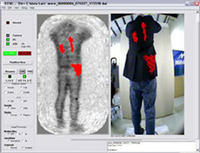
More than 1 in 5 passengers in a recent survey (23 percent) said they would refuse to be examined in one of the whole-body scanners now in many airports; a third of people under 35 said they would decline the scans; the debate among health and radiation experts continue, with no consensus yet about the health effects of airport screening
-
-
TSA union blasts DHS over labor dispute
Union representatives of Transportation Security Administration (TSA) employees sharply criticized the agency’s leaders over its approach to labor negotiations
-
-
Accenture wins $71 million contract for US VISIT
On Wednesday Accenture Federal Services announced that it had won a thirteen month, $71 million contract with DHS to bolster its immigration and border management systems
-
-
New GOP bill targets TSA screeners
A new bill introduced by House Republicans would prohibit Transportation Security Administration (TSA) employees from wearing badges and uniforms that resemble a police outfit
-
-
Model airplane hits federal building
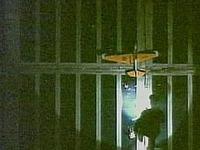
Last week a three-foot model airplane crashed into a federal building in Waltham, Massachusetts; federal investigators from DHS and the FBI promptly began investigating the incident, but so far no evidence exists to suggest any foul play; earlier this year a 26-year old man from Massachusetts was arrested for plotting to attack the Pentagon with a remote-controlled plane packed with explosives
-
-
New autopilot makes another 9/11 impossible
A hijacking-proof piloting system for airliners is being developed to prevent terrorists repeating the 9/11 attacks. The mechanism is designed to make it impossible for terrorists who highjack a plane to crash the aircraft into air or land targets. The device enables the plane to be flown by remote control from the ground in the event of an emergency.
-
-
Court rules in favor of American Airlines in $30 million dispute with TSA

On Tuesday a U.S. Court of Appeals ruled against DHS ordering the agency to review its decision to deny reimbursing American Airlines $30 million for the additional security procedures it had been asked to put in place by the Transportation Security Administration (TSA) following the 9/11 attacks
-
-
TSA facing renewed criticism over racial profiling
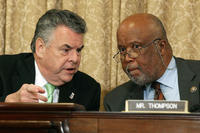
Accusations of racial profiling have triggered renewed criticism of the Transportation Security Administration’s (TSA) Screening of Passengers by Observation Techniques (SPOT) program
-
-
Wearing shoes at airport checkpoints could be a new reality
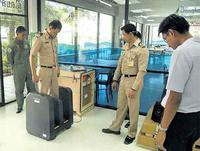
As part of its continuing efforts to make security procedures at airport checkpoints easier for travelers, the Transportation Security Administration (TSA) is actively seeking technological solutions that would allow passengers to keep their shoes on
-
- All
- Regional
- Water
- Biometrics
- Borders/Immig
- Business
- Cybersecurity
- Detection
- Disasters
- Government
- Infrastructure
- International
- Public health
- Public Safety
- Communication interoperabillity
- Emergency services
- Emergency medical services
- Fire
- First response
- IEDs
- Law Enforcement
- Law Enforcement Technology
- Military technology
- Nonlethal weapons
- Nuclear weapons
- Personal protection equipment
- Police
- Notification /alert systems
- Situational awareness
- Weapons systems
- Sci-Tech
- Sector Reports
- Surveillance
- Transportation
Advertising & Marketing: advertise@newswirepubs.com
Editorial: editor@newswirepubs.com
General: info@newswirepubs.com
2010-2011 © News Wire Publications, LLC News Wire Publications, LLC
220 Old Country Road | Suite 200 | Mineola | New York | 11501
Permissions and Policies
Editorial: editor@newswirepubs.com
General: info@newswirepubs.com
2010-2011 © News Wire Publications, LLC News Wire Publications, LLC
220 Old Country Road | Suite 200 | Mineola | New York | 11501
Permissions and Policies
